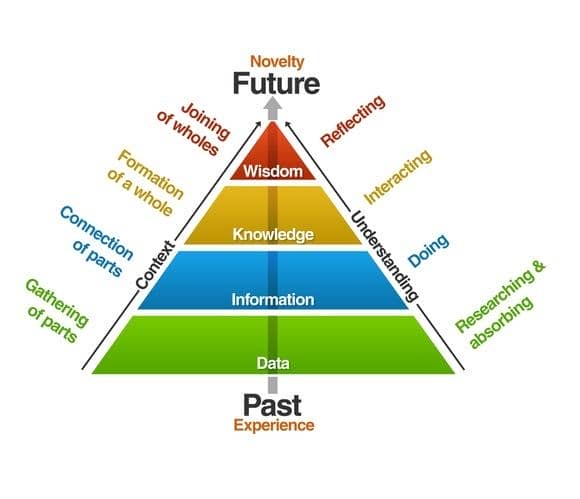 So, you want to know how to prepare for a debate.
So, you want to know how to prepare for a debate.
Good. You’ve got a shot at winning. All without screaming and ruining your reputation like so many debaters do without realizing it.
Rest assured, anyone worth debating probably already knows how to debate well. So the sooner you start mastering this form of presentation, the better you’ll do when it’s your turn to enter the arena.
It’s also good to be prepared to avoid unnecessary debates as well.
And in some cases, win them in advance, cancelling them out.
For example, I was once challenged to a debate about free will. I took the position that it didn’t exist.
But when I asked my opponent for his details to set up the online portal where the debate was going to take place, he refused. He said he would rather remain anonymous.
I replied that if he was so sure free will exists, he could surely convince himself to supply a name.
He didn’t even bother to make a name up just to get past this hump in the setup process. When I pointed this out, he folded completely. As a result, I was placed in a position of declaring the debate “won,” when in truth, this person simply outed themselves as not taking the topic seriously enough to warrant the occasion with him at all.
I tell this story because being ready for all kinds of circumstances in and around debating is key.
So if you’re ready for my best tips, let’s dive in.
The Foundational Rules of How To Prepare For A Debate
& The Importance Of Understanding Them
Debates can quickly get heated, especially not all people communicate in the same ways. As researchers have shown, whether you win the debate or not, all debates present opportunities for you to either grow trust or reduce it before the public.
In other words, literally everything you say during a debate influences how you’re perceived. And if you’re being recorded, it’s important to note that the tone and volume of your voice may not transfer as you intended in a live setting.
For this reason, modern debaters not only need to know the rules of the debate setting in which they’re engaging. They also need to think about the interpersonal and intrapersonal effects created by the medium used to broadcast the debate.
With these points in mind, let’s look at some of the basic foundations of debate you need to educate yourself about as part of your preparation.
One: Understand Different Kinds of Propositions
Debaters argue towards resolutions based on propositions or statements that essentially call for change. This change might be a change in belief or behavior, or both.
In order for people to change their minds or how they act in the world, the burden of proof falls on the person bringing the proposition.
As a debater, you should be familiar with the different kinds of propositions, which generally boil down to:
- Propositions of fact
- Propositions of value
- Propositions of action
Fact-based propositions call for objective reasoning. Although fanciful philosophical questions may arise, these need to be identified and placed aside.
Propositions of value, on the other hand, do take subjective reasoning into consideration. Some people think that subjectivity is anathema to reason, but actually you can use reasoning skills to value all kinds of subjective responses to things and events in the world.
Finally, propositions of action call for legislative change. These are sometimes called policy propositions and scientists have studied how a variety of professionals use them to enact governmental change, such as in speciality areas like medicine.
Two: Analyze Propositions Ahead Of Time And In Real-Time
To prepare for debate, you’ll want to strategies for analyzing propositions before the event begins.
However, sometimes new and unannounced propositions while arise during a debate. In order to prepare to analyze these, you can do three things:
- Engage in debating frequently and analyze propositions in real time
- Watch plenty of debates
- Watch debate reviews and breakdowns
These days, it’s easy to find many recorded debates and people breaking down the performance of others and their own performances.
In terms of how to analyse propositions, you will want to learn;
- Semantic analysis (or the analysis of meaning)
- Issue analysis (what’s at question or what is the nature of the conflict)
- What’s being generalized or subject to abstract vs. concrete thinking
Essentially, the more you know about critical thinking overall, the better you’ll analyze propositions across the board. You can easily improve your critical thinking with these exercises.
Three: Understand Types Of Evidence Before Gathering Data
My good friend Ben Cardall is known as a Real Life Sherlock Holmes. In his professional work as an investigator, he’s fantastic about helping people understand what evidence is and when it makes sense to commit certain kinds of information to memory.
The two broad types of evidence are:
- Factual
- Authoritative
The first category includes data that is observed and reported objectively. In other words, if someone witnesses an accident, they should list only matters pertaining to the time, number of automobiles, their colors, how many people were involved, what they looked like, etc. But offering judgments about who was to blame in an accident is subjective, not factual.
Authoritative evidence comes from experts. They may interpret factual evidence, and can sometimes be wrong or guilty of injecting subjective opinions. But overall, we weigh their input differently due to their experience and ideally their ability to honestly list any biases they hold.
The more you’re aware of these matters, the better prepared you’ll be in debate.
Four: Dive Deeper Into The Nature of Evidence
A lot of people cite studies when providing evidence. In fact, I’ve done so in the article you’re reading now.
When preparing for debates, it’s key that you don’t just take the presentation of evidence for granted. You need to start asking questions like:
- Did I actually read the study, or just a journalistic report about it?
- Who conducted this study?
- What are their credentials and how/where were they earned?
- When was the study conducted?
- Where and by whom?
- Why did they conduct the study?
- What statistical methods were used?
- What were their sampling techniques?
- How many subjects were involved?
- Who interpreted the findings of the study and how?
- What ethical standards did they impose?
- How much of their job security depended on their interpretations?
All of these questions will help you determine just how authoritative various pieces of evidence are in reality.
You also need to be aware of certain “halo effects.” For example, if you like me, you might be biased towards liking my friend Ben Cardall without doing your own research about him.
I get no particular kickback whether or not you read Ben’s book or follow his YouTube channel, etc. But I am aware that every time I place a spotlight on someone who creates knowledge, some people will be persuaded to take more interest in that resource. And my own work relies on this effect too.
But that doesn’t make anything any of us say valid. As a debater, you need to ask all of the questions I’ve just listed in order to be as effective as possible.
Five: Develop Your Knowledge Of Reasoning
There are many kinds of reasoning that you will want to master in debate. If you have certain polymathic personality traits, they might already be at work in your life. Otherwise, you’ll want to learn and practice pointing them out while debating.
Some of the most important kinds of reasoning to understand and deploy include:
- Reasoning from example
- Reasoning from comparison
- Reasoning from analogy
- Reasoning from effect to cause
- Reasoning from cause to effect
- Reasoning from criteria to labeling
- Reasoning from circumstantial evidence to hypothesis
This list is easy to become familiar with when you have the right resources. Check out my list of the best critical thinking books for everything you need to know about reasoning. I taught critical thinking for four years at a university and studied logic during my undergrad, so I think you’ll find those suggestions provide you with a strong starting point.
Six: Understand The Formal Procedures And Evaluation Of Each Debate
Not all debates follow the same procedures. For example, the Munk Debates might not follow the same format as your high school sessions. So it’s important to understand each debate on its own terms.
Some debates may use specialized terminology as well, such as status quo, rebuttal, presumption, etc. Make sure you’re aware of the exact terms used, as well as:
- Time limits imposed on speakers
- Rules on how ideas and rebuttals are exchanged
- How the debate is evaluated and the winner determined
Typically, a debate will open with the construction of a case by the person affirming the proposition. In other words, if the burden of proof is on you, you’ll start the debate by analyzing the proposition, talking about how you’ll organize your presentation of the evidence and then delivering it in order.
Since most debates are conducted through speaking, it’s good to know how to memorize a presentation.
Seven: Know How To Expose Fallacies
Perhaps the strongest tool you’ll want to have in your toolbox is knowledge of logical fallacies and a strategy for exposing them.
As I mentioned above, everything you do in a debate will either diminish or raise the audience’s trust in your rhetorical skills. This effect was noted thousands of years in ago in a book called Rhetorica ad Herennium.
Because developing and maintaining trust is so important, it’s important to understand that anyone can fall into fallacious argumentation. They are not necessarily attempting to be deceptive anymore than you are. Fallacies occur when:
- You use incorrect reasoning
- Faulty evidence is supplied
- Issues go ignored
- You offer “loaded questions“
- You straw man or otherwise attack a person instead of focusing on the argumentation
Fallacies are tricky and there’s a lot more to them than this. For that reason, I refer you back to the critical thinking books I mentioned above. They will help you avoid all kinds of fallacies as a debater and point them out when you encounter them.
Above all things, just remember that when you point out various fallacies, you are always revealing your own skills at remaining objective and civil.
Eight: Be Prepared For Hostility
Although you now know just how important it is to point out fallacies in a civil manner, that doesn’t mean your debate partner or the audience will reciprocate.
Part of entering any debate requires bringing levels of mental strength that allow for humans to be human. Hostility often arises when topics like politics, religion, education, culture, economics or even unpopular viewpoints arise.
As a result, you may be stared at, face a restless audience or even be yelled at by protestors. In order to deal with such responses, it’s best to treat them like symptoms. Look for the underlying causes.
Although I wouldn’t say Peter Boghossian’s performance of doing this recently was not perfect, here is a good example of someone skipping over the symptoms and looking for the causes.
Here’s my only criticism:
Hearing, “I feel sorry for you” could come off as an insult. As a result, there’s a chance of increasing the cause that lead to the individual’s “symptoms” in the first place. By the same token, Boghossian is expressing an interest in the transformation his position offers the person attacking him. Although impassioned, I believe his response is authentic.
Finally, when it comes to knowing how to prepare for a debate, do some analysis of human psychology. There are some fairly standard ways people respond to contentious issues. For centuries, people have used Memory Wheels to categorize and remember all kinds of possible issues and enabled themselves to deliver optimal responses on demand.
Step Into the Arena With Confidence
As you’ve seen, there are many psychological tactics that will help you win debates. Sure, you can read books like Robert Cialdini’s Influence, but that kind of stuff is more about marketing. Principles like social proof and reciprocity can get you slaughtered in a debate even though it’s useful to know about them. In fact, you can present them in a debate, but using them as debate tools directly can lead you into all kinds of fallacious thinking that exposes you to losing.
When it comes to debating effectively, you’ll do well to follow the rules above and keep learning more. You’ve got theory, study of actual debates and then getting your own experience to cover each and every time you go to debate.
That’s how the pros do it, and you should too, even if you just want to get better at informal debates.
When it comes to remembering everything we just covered, feel free to grab my Free Memory Improvement course:
It gives you four videos and worksheets that will help you memorize just about anything on demand using a Memory Palace.
Then, as you study the debating styles of various masters of argumentation, you’ll be able to quickly absorb their rhetorical techniques and practice them. While also avoiding their mistakes and pitfalls.
At the end of the day, we all have blindspots.
So as a final tip, make sure to record and study your own debate performances. Look at yourself objectively. Create your own benchmarks for improvement guided by the rules we’ve discussed today, ongoing study and ongoing practice.
That’s how to enter any arena and win.
And if you lose?
Make it a win by studying and practicing even harder with more doses of reflective thinking. That will help you develop the metacogntive levels of thinking that have always helped the greatest debaters of all time make a stand and make a change.
Related Posts
- 5 Ways Albertus Magnus's Tips Will Improve Your Memory Palaces
There's a moral element to memory and you can use these 5 rules from Albertus…
- Declarative Memory: What You Need to Know
Declarative memory and nondeclarative memory are incredibly different. Get the best declarative memory example now…
- How To Improve Reasoning Skills: 5 Steps (With Examples)
It's easy to improve your reasoning skills. These detailed strategies and examples will help you…








